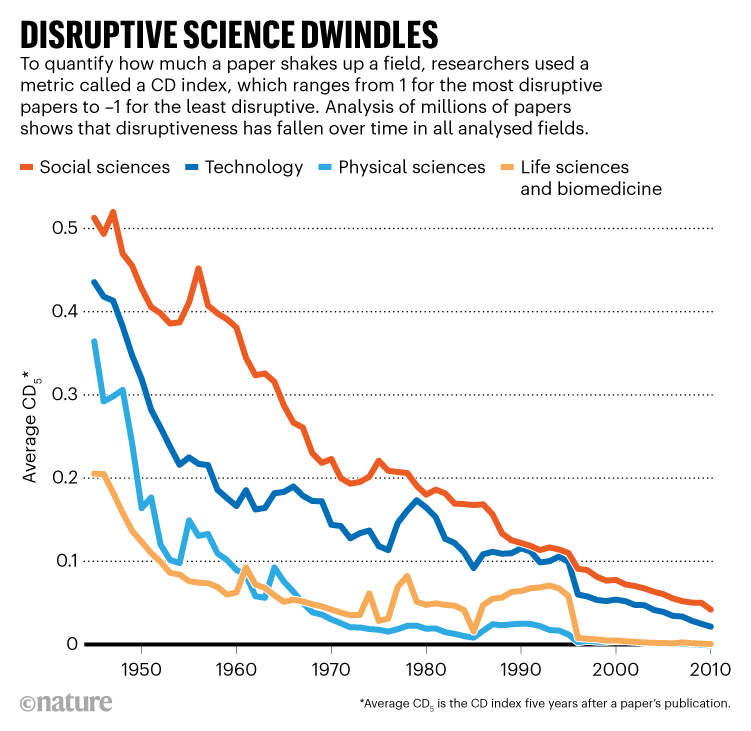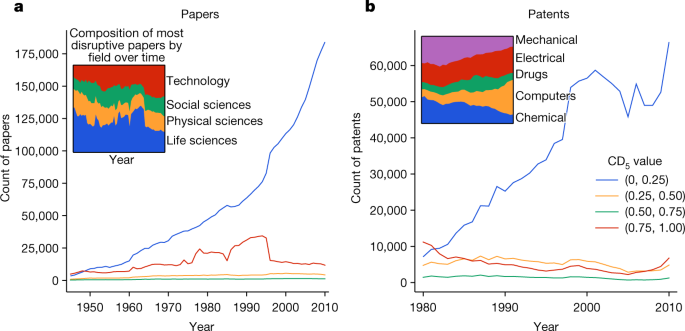Several thoughts:
1) I do not know why 1950 was chosen to start the graph. I think of the 1950s was a time of conformity, so, of course, anything disruptive would have a big impact in that time period, in Science, Politics, and Culture, especially.
2) Scientific ideas that are disruptive generally tend to be ignored and/or shun. Democritus, Dalton, Avogadro, and Arrhenius come to mind in Chemistry.
In Physics, Einstein's ideas in 1905 were on the fringe and his General Relativity from 1915 was surely fringe and not well understood. That Notion was validated by Eddington's expedition in 1919 and that got General Relativity on the Front page of Newspapers. Copernicus did not publish his ideas on the Heliocentric universe until he was on his deathbed, knowing the disruption and upheaval that would cause.
3) There are valid points already made on funding of research. Most significant scientific ideas TODAY require BIG Money, so funding is a key factor.
4) With so many getting advanced degrees, of course most will be ultimately "fluff" and not disruptive. One has to be very convinced to offer "disruptive" ideas to get passed the "board" to get one's Ph. D. and to get approval of a Master's Degree proposal.
5) I see a trend that we, most of us, go along with the overall approach (and thus be non-disruptive) until a real revolutionary and significant figure offers a new approach. Einstein, Newton, Darwin, and Freud come to mind here. I am not sure of anyone recently that comes close. Stephen Hawking, as brilliant as he was, nor Murry Gell-Mann, nor Neil deGrasse Tyson approach that status as offering truly disruptive ideas.
6) I see the idea of Global Warming/Climate Change as a disruptive idea. Look at the opposition there.
7) BTW: Opposition there is from a political, not scientific, perspective. You have those in Politics, with little real knowledge of Science, trying to argue Science and do so badly. Those opposed to such notions convince many of a certain political mindset of the false idea that Global Warming is incorrect.

That mindset of an attack on Science has now spread also to Medicine and offer false narratives on the COVID Vaccines.
9) The attack on Medicine also includes attack on other vaccines (think Jenny McCarthy) and on the growth of alternatives to medicine and the growth of Supplements.
10) Medicine is still an ART and not entirely a Science. Many forget that. We do not have ALL the answers to one's health and the mindset of the patient is an important factor here, and that cannot always be correctly ascertained.
11) Many who argue against the Science are really not very knowledgeable of Science.
































































































































